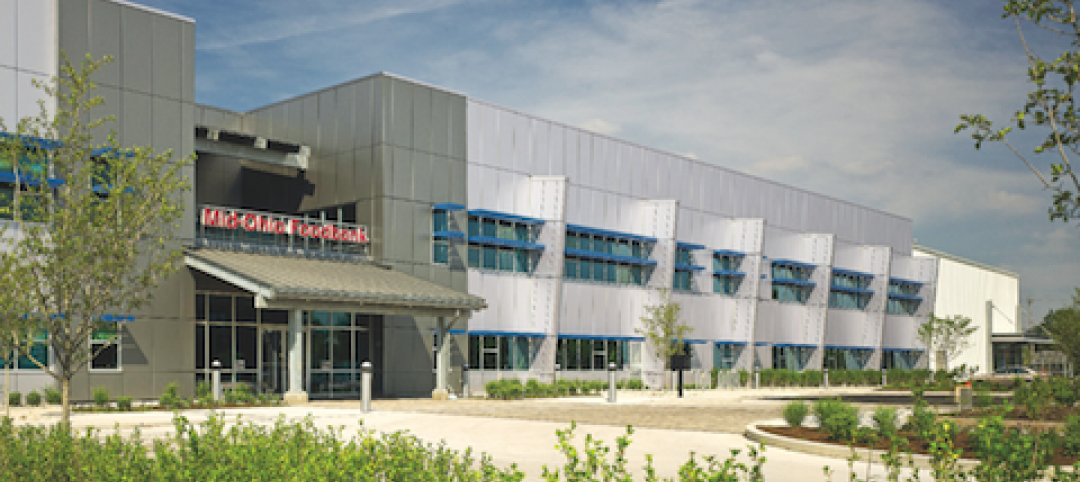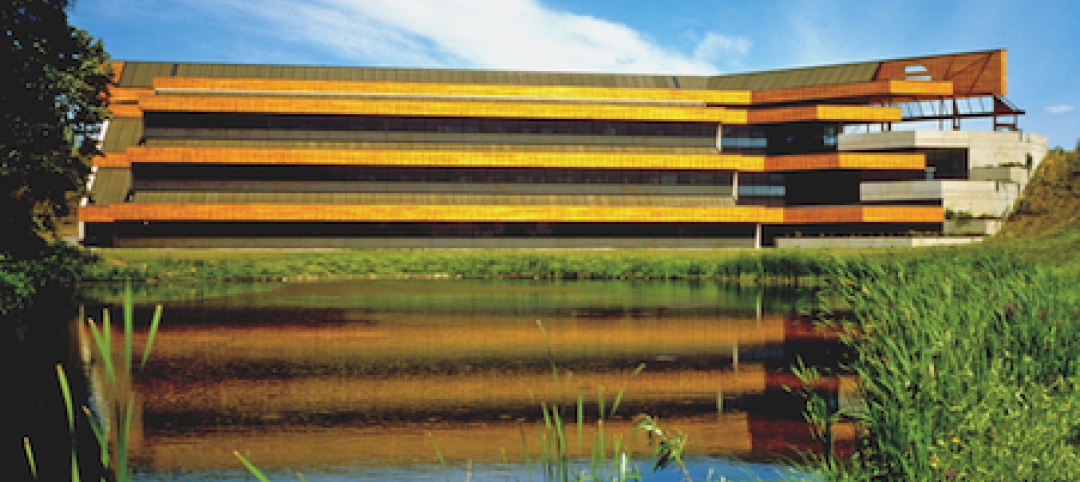In the latest chapter of the industry’s ongoing consolidation saga, two of the top 50 architecture/engineering firms, DLR Group and Westlake Reed Leskosky (WRL), are joining forces, bringing together companies with 1,000 employees in 26 locations worldwide.
This is the second addition to its stable in the last 14 months for Omaha, Neb.-based DLR. In July 2015, it acquired SORG Architects, which works primarily in the Washington D.C. area, and will now operate as DLR Group|Sorg|Westlake Reed Leskosky.
The 112-year-old WRL, founded by the youngest son of U.S. President James Garfield, will extend DLR’s presence into such eastern metros as Cleveland (WRL’s headquarters city), New York, and Charlotte. “Strategically, this increases the geographic reach of both firms,” said Griff Davenport, chief executive of DLR, which turns 50 this year.
Paul Westlake, FAIA, FACHA, WRL’s Managing Principal, added that there is little overlap of practice type specialization or clientele between the two firms, and that he sees “lots of opportunities” for DLR to fatten its nine practices on these new markets. Right before the deal was announced, Westlake informed a university president about the merger, “and he said that the university had three projects on the horizon that fit DLR’s specialties.”
Westlake considered DLR’s K-12 practice to be “the best in the country,” whereas Davenport singled out WRL’s Cultural and Performing Arts practice, a sector where the two firms had worked together on projects previously.
Other practices for the combined firm include Energy Services, Hospitality, Healthcare, Justice, Preservation, Retail, Mixed-Use, Sports, and Office.
As a Senior Principal of the combined company, Westlake will lead its Culture and Performing Arts Studio, and become a member of DLR Group’s board of directors. He told BD+C that he felt this change would return him to his roots as a designer, as well as take full advantage of his experience growing a company. (Westlake opened WRL’s second office, and several others subsequently.)
The merger also provides “ownership” opportunities to WRL’s employees, as DLR is 100% employee-owned, said Davenport.
He and Westlake said the two firms have recognized each other as industry “leaders” for a while. About a year ago, they started talking about working together in some capacity, which evolved into more substantive discussions about merging.
“As we went to through the process it became readily apparent that within our firms is a clear cultural alignment,” said Davenport. Westlake said that the eight or nine people with equity positions at WRL were “excited” about a merger. And a month before the deal consummated, the two companies brought together their respective team leaders in what Davenport called “a cultural exchange,” which turned out better than expected. “There was chemistry beyond just business.”
Several of WRL’s executives assume key management roles in the transition. Phil LaBassi, FAIA, FACHA, a Principal and owner at WRL, will become Global Healthcare Leader and direct that practice for the combined firm. Matt Janiak, AIA, will lead the operations in the Cleveland and New York offices. Paul Siemborski, AIA, will lead business developing and marketing for the Northeast Region. And Glenn Johnson will direct the DLR Group|Westlake Reed Leskosky office in Charlotte.
Tom Gallagher, AIA, who was made an owner at WRL in February, will continue to direct the DLR Group|Westlake Reed Leskosky New York office and lead a studio specializing in lighting and museum design. Gallagher will also lead projects in Asia.
Davenport said his company is keeping its eyes open for new growth avenues that might include acquisitions, which “will continue to be a strategy we consider. Every so often, a firm like WRL comes along.”
Related Stories
| Oct 12, 2010
Building 13 Naval Station, Great Lakes, Ill.
27th Annual Reconstruction Awards—Gold Award. Designed by Chicago architect Jarvis Hunt and constructed in 1903, Building 13 is one of 39 structures within the Great Lakes Historic District at Naval Station Great Lakes, Ill.
| Oct 12, 2010
Full Steam Ahead for Sustainable Power Plant
An innovative restoration turns a historic but inoperable coal-burning steam plant into a modern, energy-efficient marvel at Duke University.
| Oct 12, 2010
From ‘Plain Box’ to Community Asset
The Mid-Ohio Foodbank helps provide 55,000 meals a day to the hungry. Who would guess that it was once a nondescript mattress factory?
| Oct 11, 2010
HGA wins 25-Year Award from AIA Minnesota
HGA Architects and Engineers won a 25-Year Award from AIA Minnesota for the Willow Lake Laboratory.
| Oct 11, 2010
MBMA Releases Fire Resistance Design Guide for metal building systems
The Metal Building Manufacturers Association (MBMA) announces the release of the 2010 Fire Resistance Design Guide for Metal Building Systems. The guide provides building owners, architects, engineers, specifiers, fire marshals, building code officials, contractors, product vendors, builders and metal building manufacturers information on how to effectively meet fire resistance requirements of a project with metal building systems.
| Oct 11, 2010
Rhode Island is the first state to adopt IGCC
Rhode Island is the first state to adopt the International Green Construction Code (IGCC). The Rhode Island Green Buildings Act identifies the IGCC as an equivalent standard in compliance with requirements that all public agency major facility projects be designed and constructed as green buildings. The Rules and Regulations to implement the Act take effect in October 2010.
| Oct 8, 2010
Union Bank’S San Diego HQ awarded LEED Gold
Union Bank’s San Diego headquarters building located at 530 B Street has been awarded LEED Gold certification from the Green Building Certification Institute under the standards established by the U.S. Green Building Council. Gold status was awarded to six buildings across the United States in the most recent certification and Union Bank’s San Diego headquarters building is one of only two in California.
| Oct 6, 2010
Windows Keep Green Goals in View
The DOE's National Renewable Energy Laboratory has almost 600 window openings, and yet it's targeting LEED Platinum, net-zero energy use, and 50% improvement over ASHRAE 90.1. How the window ‘problem’ is part of the solution.
| Oct 6, 2010
From grocery store to culinary school
A former West Philadelphia supermarket is moving up the food chain, transitioning from grocery store to the Center for Culinary Enterprise, a business culinary training school.
| Sep 30, 2010
Luxury hotels lead industry in green accommodations
Results from the American Hotel & Lodging Association’s 2010 Lodging Survey showed that luxury and upper-upscale hotels are most likely to feature green amenities and earn green certifications. Results were tallied from 8,800 respondents, for a very respectable 18% response rate. Questions focused on 14 green-related categories, including allergy-free rooms, water-saving programs, energy management systems, recycling programs, green certification, and green renovation.













